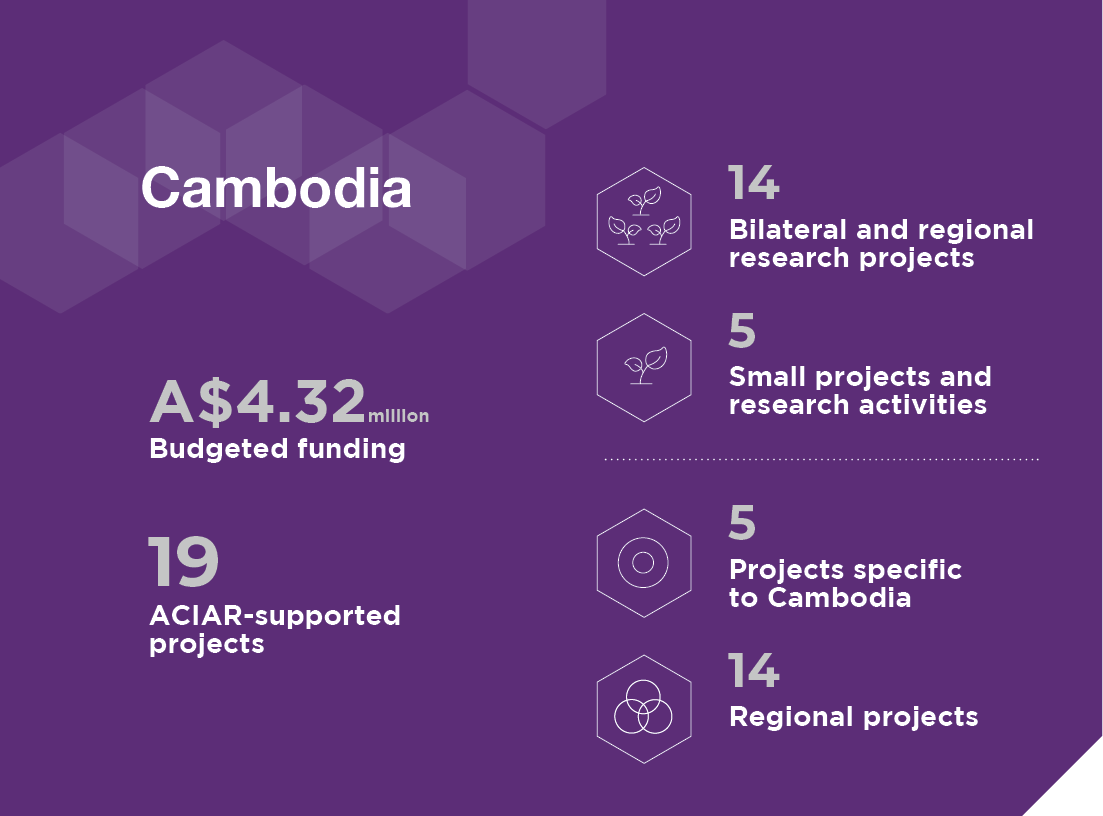Cambodia’s strategy of ‘living with COVID-19’ introduced in late 2021 is paying off. Economic recovery is gaining momentum with goods export growth accelerating and even besting its pre-pandemic growth rate.
According to the World Bank, Cambodia’s real GDP growth projection increased to 4.8% in 2022 due to a broad-based economic recovery. However, while recovery from COVID-19 is ongoing, Cambodia is potentially affected by a slowdown of global demand. Especially worrying is the vulnerability of Cambodia’s export-oriented manufacturing sector due to an extended slowdown in the United States of America. The same concern applies to its second-largest export market, the European Union, which is facing a substantial risk of recession. Additionally, China, Cambodia’s biggest source of foreign direct investments, is also experiencing an economic slowdown, which is already affecting investment and capital inflows.
In January 2022, the Cambodia–China Free Trade Agreement came into effect. This agreement makes China an important export destination for Cambodia’s agricultural commodities. China captured 40% (US$281 million) of Cambodia’s total agricultural commodity exports with the 3 largest agricultural commodity export items (bananas, milled rice and cassava).
Cambodia’s Minister of Agriculture, Forestry and Fisheries, HE Mr Dith Tina, reported that the kingdom exported 8.6 million tonnes of agricultural products to 74 markets in 2022 and this was worth nearly US$5 billion. This is up by 7.8% compared to 2021. Agriculture contributed 22.2% of Cambodia’s 2022 GDP.
The Cambodia Agriculture Survey 2020, released in 2022, highlighted that 57% of total households in Cambodia are engaged in agricultural production. Of the households engaged in agriculture, 94% are cultivating crops, 82% are raising livestock, poultry or insects, and around 27% are involved in capture fishing. Agriculture remains important to livelihoods in Cambodia, with an estimated 31% of agricultural households citing that 40–59% of their income came from agriculture. A further 16% reported that 60–99% of their total household income came from agriculture.
COVID-19 had a significant impact on Cambodia’s food security. The Cambodia Agriculture Survey reported that 24.7% of agricultural households experienced moderate or severe food insecurity. Female-led households reported higher food insecurity (28.7%) than male-led households (23.1%).
With extensive floodplains, Cambodia is highly exposed to floods, scoring 9.5 out of 10 in the 2023 global risk index for humanitarian crises and disasters. Climate change is expected to intensify flooding and drought, and worsen saline intrusion. These events put at risk Cambodia’s aspiration to become an upper-middle-income country by 2030 and a high-income country by 2050.
The Royal Government of Cambodia is committed to pursuing green growth through its National Strategic Plan on Green Growth 2013–2030 and its Long-Term Strategy for Carbon Neutrality by 2050. Given the importance of agriculture to Cambodian food security and its potential for commercialisation, investment in climate-smart agriculture and natural capital management, development partners are asking for these to be prioritised by government.
Country priorities
ACIAR and the Royal Government of Cambodia (represented by the Ministry of Agriculture, Forestry and Fisheries) have an ongoing 10-year agreement on the strategic priorities for research collaboration. From 2019 to 2029, research collaborations will focus on 3 domains to support the development of Cambodian agriculture:
- sustainable intensification and diversification of agriculture, focusing on non-rice crops in traditional crop-rice systems and alternative cropping systems
- sustainable intensification of market-oriented smallholder livestock production systems
- sustainable intensification of freshwater aquaculture production systems for nutrition-rich species.
Research priorities over this time will also take into consideration cross-cutting themes that address challenges across the agriculture sector. These are:
- gender equity, women’s empowerment and nutrition – these are particularly important in the context of increasing labour migration that impacts women and children in rural Cambodia, and high rates of stunting and poor nutrition among women and children
- climate variability mitigation and adaptation to climate change, taking into consideration climate variability and enabling climate-resilient farming systems
- food safety and standards.
2023–24 research program
The research program addresses our high-level objectives, as outlined in the ACIAR 10-Year Strategy 2018–2027, as well as specific issues and opportunities identified by ACIAR and our partner organisations.
The following table lists ACIAR-supported projects active in Cambodia during 2023–24.
Current and proposed projects in Cambodia, 2023–24

